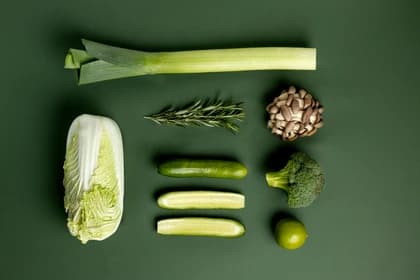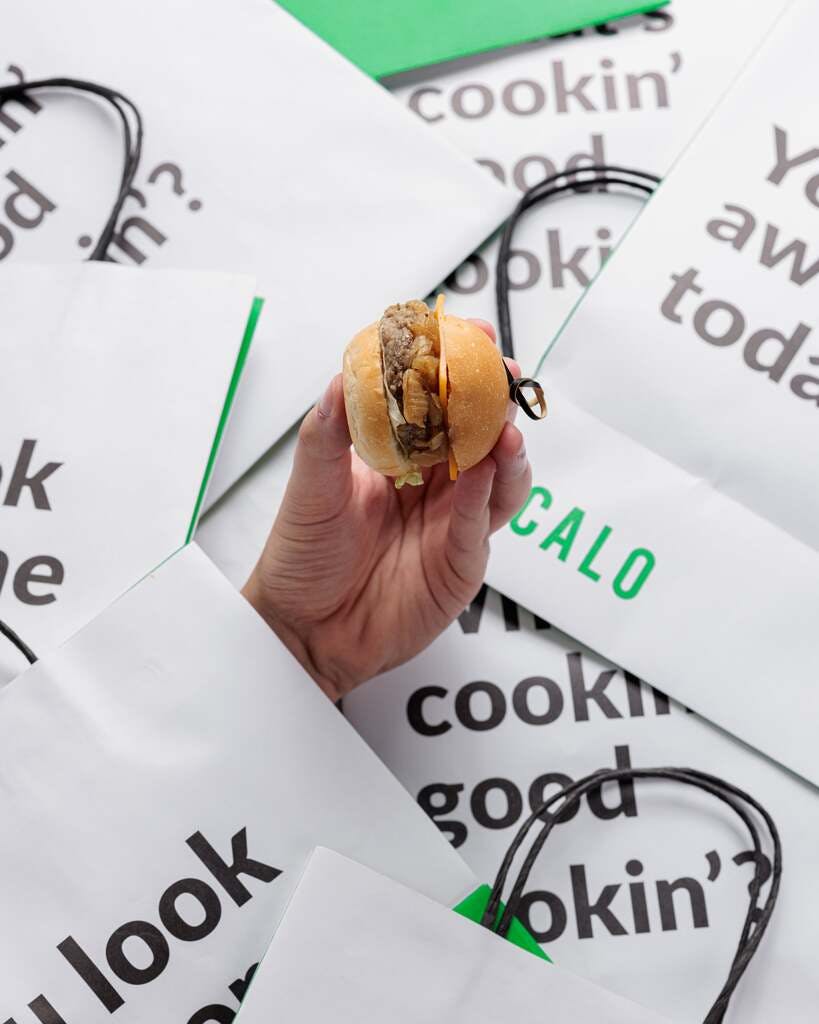Back to blog
The Inside Scoop on Protein Powder

Protein Powder Explained
Protein Powder Vs. Natural Protein
Foods Sources of Protein
Protein Benefits and Risks
Healthy Meal Delivery
Protein Powder Vs. Natural Protein
Foods Sources of Protein
Protein Benefits and Risks
Healthy Meal Delivery
Protein isn’t just another nutrient on your plate; it’s the building block that keeps your entire body running smoothly. It supports nearly every system and organ, keeping your metabolism active, your immune system strong, and your heart and brain in top shape. Think of protein as your body’s repair team; it helps heal tissues, strengthens bones, and enhances muscle growth. In short, it’s the nutrient your body simply can’t do without.
But that’s not all, it also helps control appetite and fuel your body with energy. That’s why people who follow high-protein diets like Keto and Atkins often have better metabolic health. In this article, we’ll compare protein powder to natural foods, uncover your protein needs, and highlight its uses, benefits, and potential risks.
Protein Powder Explained
If you’re curious about how protein powder is made, it’s quite simple. Protein is extracted from animal and plant resources to create the powder. Along the way, most of the carbs, fats, and fiber are usually removed, while extras like vitamins, herbs, or sweeteners may be added. The powder is mainly used in protein shakes and baked goods, though some people mix unflavored powder into soups, stews, or oatmeal purely for its benefits.
What’s the catch?
It’s worth noting that protein powder is considered a dietary supplement, not a food or medicine, so it’s not tightly regulated. Manufacturers are mainly responsible for product safety, and while guidelines exist, not all companies follow them. In fact, a 2017 review found that about 1 in 4 supplement brands had issues with purity or ingredient accuracy. So is protein powder safe really? Well, it depends.
Protein Powder Vs. Natural Protein
Whether to use protein powder to boost your protein intake has become a common question nowadays. However, most people can get enough protein from their diet instead.
The amount of protein you need depends on your age, health, and exercise routine. Research suggests that older adults and people who exercise to build muscle may benefit from eating 1.5 to 2 times the standard recommended amount. As we age, muscle naturally declines, and increasing protein intake can help preserve strength and lean body mass. Still, unless you follow a restrictive diet like a strict vegan plan, most of this protein can be obtained from regular meals.
Read more about a high-protein diet for vegans.
How much protein do I need exactly?
When deciding if you need protein supplements, it’s important to consider how much protein your body requires. The recommended amount (RDA) is 0.8 grams of protein per kilogram of body weight, which is about 40 grams per day for a 50 kg person and 70 grams per day for a 90 kg person. In contrast, only athletes in intense training may benefit from much higher amounts of protein powder for muscle gain and growth.
In certain cases, it’s best to consult a specialist before using protein supplements. Pregnant women have slightly higher protein needs, but some protein powders may be unsafe to consider due to added ingredients. Similarly, individuals with kidney disease often require less protein than the usual RDA and should seek professional guidance.
Best High Protein Foods

Protein comes in many forms. If you’re looking for protein rich food sources, you’ll never run out of options to keep your meals diverse and enjoyable. One egg, half a cup of chickpeas, or a small handful of nuts each provides about 6 grams of protein, while a small piece of chicken or fish packs roughly 30 grams. For most people, meeting daily protein needs is relatively easy through a normal diet. Protein can come from both animal and plant-based foods. Here are some examples:
Animal-based Protein Sources
- Chicken breast: Lean and protein-packed.
- Turkey: Another lean option with plenty of protein.
- Fish: Salmon, tuna, and trout are rich in protein and omega-3s.
- Lean beef: Rich in protein and iron.
- Eggs: A complete protein with essential amino acids.
- Greek yoghurt: Thick, creamy, and protein-rich, perfect for many recipes.
- Milk: A source of both protein and calcium.
- Cheese: Cottage cheese and cheddar are particularly protein-dense.
Read more about Calcium Sources and Omega-3 benefits here.
Plant-based Protein Sources
- Legumes: Lentils, chickpeas, and black beans are excellent options.
- Tofu: Made from soybeans, versatile and protein-rich.
- Tempeh: A fermented soy product with even more protein than tofu.
- Edamame: Young soybeans, usually found frozen.
- Quinoa: A complete protein containing all nine essential amino acids.
- Hemp seeds: Rich in protein and healthy fats.
- Chia seeds: High in protein, fiber, and omega-3s.
- Seitan: Wheat gluten-based, and a great meat-like protein alternative.
- Nuts and nut butters: Almonds, peanuts, and their butter spreads make great protein snacks.
Key Protein Benefits

When it comes to diet debates, there’s often controversy around carbs and fats. But when it comes to protein, there’s no doubt about its importance, and here’s why:
Keeps You Fuller for Longer
Protein lowers levels of ghrelin, the “hunger hormone”, keeping cravings under control. It also balances weight-regulating hormones (peptides), making it easier to stick to your diet goals, whether you’re trying to slim down or bulk up.
Builds and Preserves Muscle Mass
Protein is the building block of muscle, especially for athletes or those who train regularly, from bodybuilding to cardio workouts. Alongside protein powders, supplements like BCAAs can also help reduce soreness after intense sessions of exercise like crossfit.
Supports Bone Health
Protein plays a key role in strengthening and maintaining healthy bones. Research suggests that animal protein tends to be more beneficial than plant-based protein from legumes, which is why some diets like Carnivore and Keto exclude legumes due to their higher carb content.
Helps Lower Blood Pressure
High levels of bad cholesterol (LDL) increase the risk of heart disease and hypertension. Protein-rich diets can help reduce LDL levels, supporting cardiovascular health.
Read more about Protein Power for Kids.
Aids Recovery after Injury
Because protein forms the foundation of tissues and organs, it speeds up healing and repairs tissue damage after injuries. That’s why nutritionists recommend a high-protein diet during recovery.
Protein Powder Side Effects
With the recent rise of protein powder trends, many people are adding them to their daily recipes. But too much of a good thing can backfire. While protein powder benefits the body in ways, overloading on protein, especially without a nutritionist’s advice, may lead to health issues. Some potential risks include:
- Weight gain
- Bad breath
- Constipation
- Diarrhea
- Dehydration
- Kidney strain
- Increased cancer risk
- Heart disease
- Calcium loss
Healthy Meal Delivery
Whether you’re vegan, vegetarian, or follow a traditional diet, your protein goal can be met easily. With the Calo App, you can enjoy protein-packed meals delivered straight to your home or office, customised to your goals and taste.
FAQs
How is protein powder made?
Protein powder is made by extracting protein from animal or plant sources like eggs, rice, or peas. In the process, carbs, fats, and fibre are often stripped away, while extras such as vitamins, herbs, or sweeteners are possibly added.
Read more about the Egg Diet.
How to use protein powder?
Protein powders can be used in lots of ways, most commonly made into protein drinks and smoothies. Vegan protein powder works just as well and is a great option for those on a plant-based diet. Stick to the amount your body needs, as too much can strain your kidneys. You can take it after workouts, for breakfast, or with meals. Here’s how:
- Protein shakes and smoothies: Mix powder with water, milk or other liquids. You can add bananas and dates for extra nutrition and flavor.
- Backed goods: Add powder into muffins, pancakes, or energy bars recipes for a quick energy boost.
- Everyday meals: Unflavored protein powder can be added and stirred into soup, stew, yogurt, or oatmeal.
Read more about the benefits of dates.
Is there a specific protein powder for women?
Yes, many brands produce protein powders designed specifically for women, with slightly different formulations. There is also a specific protein powder for weight gain and other types for weight loss. Whether the goal is weight loss or gain, protein is always a must.
You can read more about the Weight Loss Diet.
Protein isn’t optional; it’s essential. But when it comes to protein powder options, more isn’t always better. Unless you’re an athlete, older adult, or on a strict diet, chances are your plate already has you covered. Anything beyond that just piles on calories without extra benefits. So, downing three scoops at once? Not doing you any favors. Intact food should always be your first choice; it’s cheaper, safer, and packed with extra nutrients. But if you struggle to meet your needs, supplements can be a handy backup. You can read more about healthy fat foods and sources of fiber and more topics related to health on the Calo blog.








